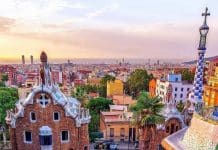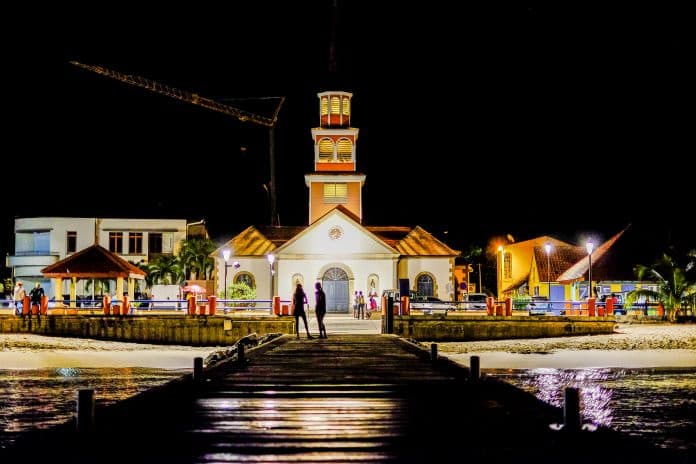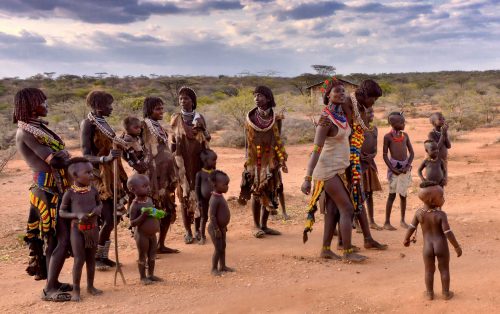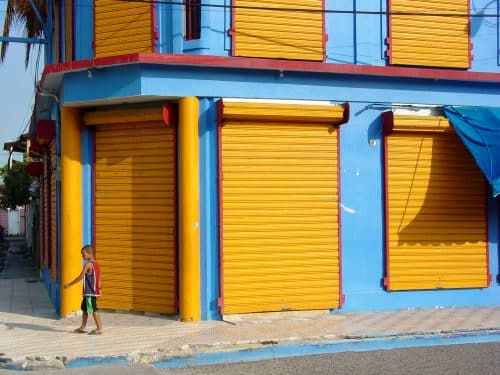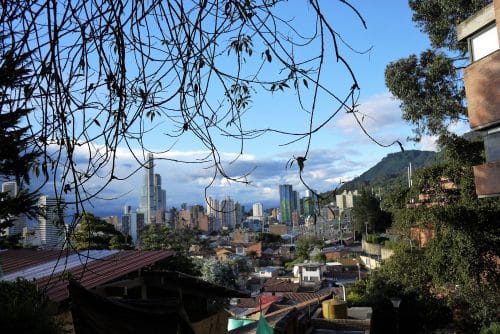When imagining travelling, the idea of going somewhere exotic with a different culture is a desired characteristic of a vacation destination. The craving to witness something outside of the norm of everyday society constitutes as a successful adventure to travelers. While being cultured is an admirable trait, especially in Western countries, the idea of travelling to have an authentic cultural experience is a myth.
Our Expectations
It is an unattainable travel goal because of the unrealistic perceived notions and expectations that most people have of a new country. When thinking of African tribes people, or small indigenous communities in Asia, Central and South America, Western cultures often think of these as ‘untouched’ and pure cultures. Assumed to have little to no influence from the Western World, and that locals are poor, uneducated and they are viewed as ‘primitive’. Not only is this view very narrow minded, it is also offensive to believe that education and technology can only spread within the borders of first world countries.
What is Culture?
Culture is a set of shared customs and beliefs that a group or society share. Usually culture is represented in the arts with music, dance, artwork, and through food. To learn about another culture it takes time to fully immerse yourself in another persons way of life. It is a long period of discovery and learning about the diversity within your culture and another persons.
Marketing Strategies
Often how countries are marketed to potential visitors is by playing off of old stereotypes that pull Westerners into believing that they will be cultured and have an adventurous trip. Cultural tourism is an area of travel that boosts economic growth by connecting the world of tourism with local traditions. It uses staged photos of locals participating in past traditions to encourage people to visit this area. Using words such as ‘exotic’, ‘immerse’, and ‘local rituals’ tourists believe they are having a unique learning opportunity as they are embarking in a rare adventurous experience. Locals in return have learned that tourists will pay more for an authentic experience and will act in accordance to the stereotypes that affect them. This then creates a strange sub-culture of fake cultural authenticity. Even though this idea of connecting tourism with development is a powerful idea, many times the flow of money is manipulated. Often when tourists believe they are supporting local communities by going on special cultural excursions, often they are instead supporting corporations based in North America and Europe that control tourism within a different country.
Resorts and cruises are a popular vacation for North Americans, with day trips and excursions constantly being offered visitors have the opportunity to experience the ‘real culture’ within a country. As someone from the Western World that used to live in The Dominican Republic, it was really interesting watching people from both cultures interact in a resort.
Outside of the resort I was able to spend time with locals who confided in me to say that even though there is a large serge of tourism they hardly reaped the benefits. Busses from resorts take tourists to specific points within the city of Puerto Plata, however if a business is not in that particular location then no tourists will visit. Vacationers are not encouraged to leave the resort, unless it is for a guided excursion facilitated by the hotel. Local hotels, restaurants, and shops do not see money from tourists. This is the same for cruise ship stops, everything that a tourist needs is on the ship, when they leave they are hardly contributing to the local economy because they are on an island for a matter of hours.
During my time teaching English in Puerto Plata in a solely Dominican community, for a week I stayed in a resort when my parents visited me. How locals were represented in the hotel was completely different from my impression of the open and energetic Caribbean culture. During nightly performances, dancers would only wear cheetah print cloths and use drunk audience members as props to dance around. Which the crowd of mostly sunburnt North Americans thought was really entertaining. It was so awkward to watch because both representations of these cultures are so off in this situation. Westerns viewed Dominicans as promiscuous and primitive because of their outfits, and Dominicans viewed the vacationers as drunk and unintelligent.
The culture of the resort in general was an odd mix of misrepresented cultural expectations. Obviously, a resort is a business and employees purposely acted overly sexual and extra friendly for more tips. Just like anyone who works in the service industry, they capitalized on the carefree drunken spirit of guests. Fitting the expectations of foreigners added to the atmosphere of the resort. For travelers, a resort is a short period of time where they can forget about all of the stress from their everyday life. During a week they over indulge in every aspect of their life from entertainment, food, and drinks.
Surrounded by this juxtaposition, instead of being treated normally in Dominican society, suddenly it was assumed I was staying a resort on vacation and had the same goals as every other North American. However, that wasn’t my intention. Dominican workers were shocked to find out that I spoke Spanish and lived in the same city as them. I talked to workers about my confusion of how the Island culture was being represented. The majority of Dominicans agreed that foreigners have no interest in learning about Dominican culture, and the resorts to show a specific side of the island by creating day trips for people to partake in. Some of these trips include going to tourists hotspots such as rum factories, bus tours of cities, and to national parks. Those are all fun activities but they are not an authentic experience.
On the same note, during my entire time living in the Caribbean, every single day I felt like I was breaking a damaging stereotype that resort goers had given me. Locals were surprised to find out that I wasn’t swimming in money, I wasn’t promiscuous, ignorant, or an alcoholic. Even though both cultures are in the business of interacting with each other through tourism, my personal thoughts of how the cultures functioned were misrepresented.
Does Authentic Culture Exist?
Is it possible to encounter a culture that hasn’t been altered by another culture? No, the world is so interconnected that there are pieces of every different culture in each country. Often Westerns think locals are trapped in an imperialistic era, and don’t know how to react when locals do not act how they are marketed. When they do not hold on to hold customs and are modernized, tourists sometimes do not know how to react.
Staying true to how cultures can be marketed, cultural tourism provides excursions that take vacationers on a journey to the past. That exhibits often-older cultural traditions that are not regularly practiced by locals. Once again for the sake of business, rituals are preformed and tourists are able to think they are having an authentic experience. Regardless of what is and is not authentic, it seems that people see what they want to see. If a strong drive for travel is adventure and a vacationer wants to see something completely unlike their everyday life, they will view guided ‘cultural excursions’ as having a rare insight into the lively hood of a different group of people.
Is it possible to find real culture?
The majority of this article takes a pessimistic view towards cultures interacting, however it is completely possible for a traveler to go on vacation and have an authentic cultural experience. The point of this piece is not to discourage people from exploring the world, but instead to make people more aware of how to interact with culture. Exploring a new culture takes time and effort to be familiar with a new set of traditions. Having an open mindset and spending time with locals is how you can have authentic cultural experiences. Yet this experience will be nothing like the assume experience of interacting with locals stuck during the period of imperialism because this is the 21st Century.
Being ‘cultured’ is not something that happens in a set period of time during a tourist activity, such as signing up for a tour to see a ‘local tribal dance’ or a special ceremony. Through a performance that locals put on specifically for tourism, travelers can have a glimpse into their culture, however on guided excursions this authenticity is staged. Participating in these trips is not a bad thing to do, it is a learning experience, but is does not make a tourists necessarily more cultured about a different country. Reading about history, learning a new language, eating local food, and living abroad are all things that make humans more cultured. Travel is an act that changes perceived notions of a group of people and is very eye opening to how different societies function, just remember to stay open minded and allow yourself to discover someone’s way of life.


